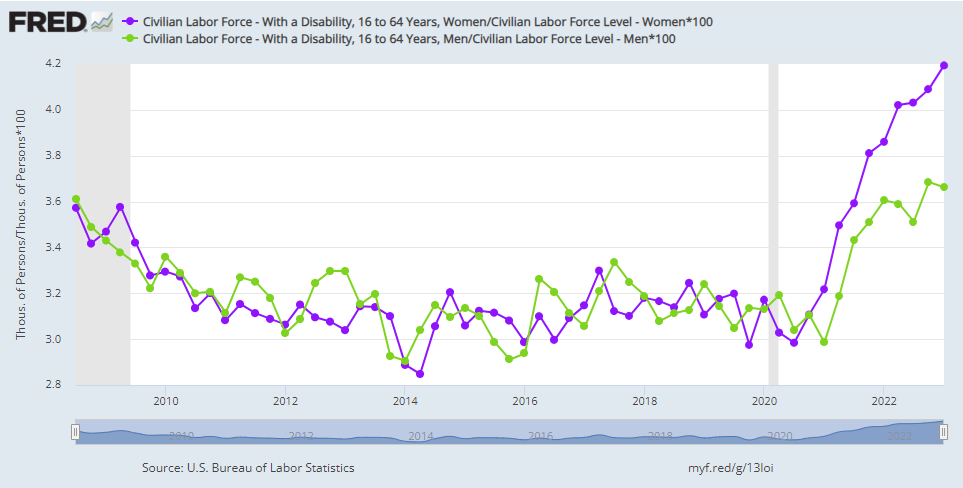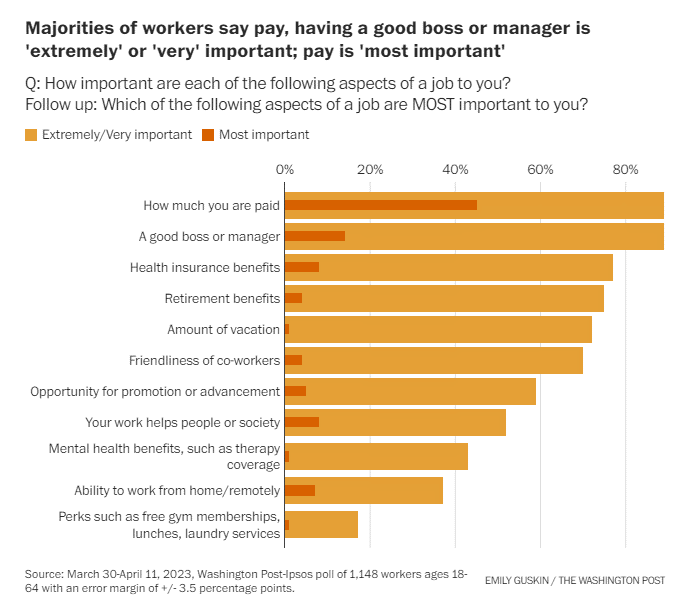
Back to the office? What the data says about remote work
26/06/2023
It’s been some time since remote working entered the mainstream. Now we’re starting to see data trickle in about how employees see it, and the benefits that businesses are getting.
So what are the numbers telling us, and what can we apply to our own businesses going forward?
Unpacking the numbers
The remote working question continues. This article from The Washington Post had some interesting points:
-
The survey found that on-site working is not back up to the pre-pandemic levels
-
60% were fully on-site pre-pandemic vs 22% now
-
-
Workers who can work from home for the most part want to work from home
-
37% would choose to WFH all of the time and 35% would choose to most of the time
-
-
When it comes to either-or, overall, people prefer higher pay over remote working
-
80% would choose higher pay vs 20% who would choose remote working
-
-
Opportunities for promotion are important, particularly for younger workers
For the last point, The Washington Post used this to weave the narrative that “Gen Z and Millennials want promotions”, but I'm not so sure.
I don’t think it accounts for the fact that they’re probably earlier in their career at that age, it’s not like they polled the older workers 30 years ago and they replied “no, I'm not worried about being promoted”.
The statement “Gen Z and younger millennials (ages 27 to 34) are more likely to say opportunities for promotion and advancement are important to them compared with older workers” feels like a naive or narrow interpretation of the data. I'd be interested to know why people are more promotion or money hungry than they have been, but that’s a bit beyond the scope of this blog!
Workers with disabilities data
Another related article I read was this one, sharing research by the Federal Reserve Economic Data (FRED). It shows that, in the US, there has been a drastic increase in the number of people with a disability entering the US labour force since the start of 2021.

My thoughts around this started with “work from home is allowing more people to work” but then after a moment's reflection I became a little more unsure. It was the thought of “why are they joining the workforce?” which isn't shown in this graph.
Are people joining the workforce because they can? Or because money is tighter than it used to be and they feel like they have to?
I'm going to take it as a net positive, based on one of the polls from the Washington Post article which found that most people enjoy work, even though it is stressful. Around 82% of people said they found their jobs very or somewhat enjoyable, and 61% of people said they found their jobs very or somewhat stressful.
What makes a job good?
When asked to rank what matters most in a job, the majority of people prioritised pay. Close behind “pay me more” is “I want a good manager”, but it’s easier to advertise based on pay than “we'll give you a good boss”.
I don't know how much the desire for promotion is actually a desire for more money or a different boss but I think it accounts for a fair proportion.

The culture question
The part that I find curious in all this is that proximity bias is a big concern, it’s been shown that people in management positions will probably treat preferentially those people that they can see working.
I'd be making bets on promotion prospects in a department based on the working/remote preference of those in charge. It’s been shown that remote workers want more feedback from more sources so I can see remote work cultures being more meeting heavy.
I guess it’s going to come down which of the company cultures you're looking at. I’ve put the different approaches into these four categories:
-
Remote is preferred, feels like a contractor mindset and culture. I'd expect more churn here, though I've got no proof to hand. I join, I do my work get paid and move on after a set period or a better offer. No warm fuzzy feelings necessary, just tell me what you want me to do and pay me. Not really a people first kind of ethos in charge, but you're responsible for your own growth.
-
Remote hybrid, AKA “fine I'll come in for meetings”. This feels like a middle house with the most downsides. you're going to have to pay people more on this one as otherwise they're probably just looking for another contract after 18 months.
-
Occasionally remote, AKA “I need to concentrate on this” or “I've got a plumber coming”, in the office with the flexibility, this requires good management and psychological safety within a workplace which are probably products of a good work culture already.
-
No remote, AKA “I pay you so I expect to see you at work unless you're on holiday” you've shrunk your talent pool if you aren't paying people to give up the benefit of occasional remote working. Again feels like more downsides compared to other options.
I don’t know if it’s personal preference, or objectively the best, but my instinct tells me option three will work best for the most companies.
Final thoughts
My conclusion isn't too radical. My advice is know your manager’s and company’s preference to remote/hybrid/on-site working and decide what else is important to you. If you manage remote teams, be aware that remote bias is going to exist between people, and ensure you allow for that.
A more challenging conclusion could be that this has shown employers have lost some power over their employees, they've got less and less ability to treat all employees as replaceable cogs, they’re going have to treat them as people first.
P.S Forgive me for that pun, but I do think any misalignment between the business’ culture and broader market expectations are going to cost you a lot given the talent shortage right now. Make sure you listen to what your employees want, or they’ll find someone who will!